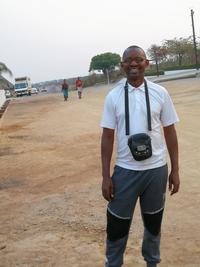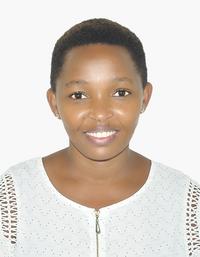Lab Daniel Giglio - Viral infections and Cancer Risk in East Africa
Short description
The project is conducted in Ethiopia, Rwanda, Tanzania and Zambia where the prevalence of human papillomavirus (HPV) and Epstein-Barr Virus (EBV) and associated cancers forms is assessed in the healthy population and in risk populations. Genetical and protein biomarkers identifying individuals at risk of developing HPV and EBV infections and associated cancer forms are assessed. Moreover, how the transition of a traditional African diet to a Western Diet affects genes important for inflammation and cancer in Africans is addressed.
Impact of Human Papillomavirus and Epstein-Barr Virus and Changes in Diet on Cancer Risk in East Africa
Background
Human papillomavirus (HPV) is the most important risk factor for the development of cervical cancer and is also an important risk factor for the development of head and neck cancer (HNC). The incidence of HPV-associated HNC is increasing in the Western World. While knowledge on cervical cancer is scarce, knowledge on the prevalence of oral potentially malignant disorders” (OPMDs) and HNC is close to non-existing in East Africa. Non-communicable diseases are increasing in incidence in Africa depending on changes in diet from an African diet to a western diet.
Aims
First, we will assess the prevalence of EBV and HPV infections and HPV/EBV-associated cancer diseases in East Africa and associated genetic risk profiles associated with contraction of viral infections and development of cancer. Second, we will identify screening methods to identify individuals at risk of developing HPV-associated cancer. Third, we will assess how the transition from an African diet to a western diet including wheat products may lead to genetic changes that potentially may lead to a higher incidence of cancer in the future in Africa.
Methods
We have since 2013 collaboration with the University of Rwanda (UR), since 2019 collaboration with Addis Ababa University (AAU; Ethiopia), since 2021 collaboration with the Copperbelt University, Ndola, Zambia and since 2023 collaboration with Muhimbili University of Health and Allied Sciences (MUHAS), Dar-Es-Salaam and Sekou-Toure Regional Referral Hospital and Bugando Medical Centre, Mwanza, Tanzania.
Zambia
We have recruited an urban cohort (cohort A1) of 188 participants from Ndola, Zambia, and a rural cohort (cohort A2) of 211 participants living in Mansa, Zambia. Questionnaires covering risk factors of contraction of HPV were administered, swab specimens for HPV testing and blood samples for EBV and genetic testings were taken. Questionnaires and biological samples will be analyzed in Sweden. In the next step in our project, we will assess the prevalence of HPV- and EBV- associated malignancies in Zambia by studying populations with HNC and lymphoma recovered at hospitals in Zambia. OPMD/tumours will be histologically examined according to clinical practice. Participants will thereafter undergo venous blood tests for EBV infection (EBNA1 IgG and VCA IgM and IgG and gp350 IgG) and for genetic testing. Previous studies from the research group show that SNPs in genes encoding interferons may lead to a susceptibility to contract and difficulties to clear viral infections in Rwanda. We will analyze blood samples for SNPs in genes with genome-wide association study (GWAS), including genes important for the immune system, and with metabolomics to assess whether there are differences in prevalence of SNPs and metabolites between participants who have a present HPV infection in the head and neck area or present EBV infection vs. uninfected individuals. Moreover, we will compare SNPs and metabolites in patients who have developed HNC compared with the general population. Participants in cohort A1-2 will be asked questions related to wheat intake through the questionnaires (see above). As mentioned, cohort A will be subject to GWAS and metabolomics to assess for proline and other metabolites. We will further analyze gene expression with Olink depending on outcome of GWAS, metabolomics and Olink and we will select a smaller group to further analyze plasma samples with RNAseq. Findings from RNAseq will be confirmed by qPCR.

Rwanda and Ethiopia
From proteomics we identified a biomarker panel potentially identifying women at risk of developing cervical risk lesions (3). In 2021 we recruited 413 Rwandan women living with HIV where cervical and vaginal samples were taken for HPV analysis and for validation of the biomarker panel and a blood test. Women will be called in October 2023 for a new HPV testing to identify women who have or have not a chronic HPV infection (i.e. persistent infection for 2 years or more). Moreover, from blood samples we will assess with GWAS SNPs correlating with the susceptibility to contract HPV or to develop chronic HPV lesions. We will validate findings from the biomarker panel from Rwanda in women living with HIV treated at the HIV clinic, Black Lion Hospital, Addis Ababa, Ethiopia. In September 2023 we have included 108 women in Addis Ababa and we plan to include 326 women in total.

Tanzania
The region around Victoria lake, Tanzania, in East Africa (Lake Zone) has one of the highest prevalence of cervical cancer in the world. In 2023, we initiated collaboration with Sekou-Toure Regional Referral Hospital, Mwanza, Tanzania, and Bugando Medical Centre, Mwanza, Tanzania. Besides, assessing the prevalence of cervical cancer in the Lake Zone we will also assess the prevalence of cervical cancer in Dar-Es-Salaam in collaboration with Muhumbili National Hospital and Muhumbili University of Health and Allied Sciences (MUHAS), Dar Es Salaam, Tanzania. Dr. Nestory Kasheshi, resident in gynecology and obstetrics, the Sahlgrenska University Hospital, will in the present sites assess the prevalence of HPV and cervical cancer.

Significance
The prevalence of HPV- and EBV-associated cancer diseases in East Africa is largely unknown. We will collect data regarding co-morbidities, clinical parameters from questionnaires and molecular data in the form of genetic data (GWAS), RNAseq, Olink and metabolomics from unique populations in Africa not previously studied in respect to HPV/EBV infections or OPMD/HNC. Integrating clinical data with omics and molecular data will be made possible to enrich and deepen the information regarding the studied cohort. Our team constitutes of oncologists, dentists and experts in infectious disease and genetics, and we have created a foundation for research on viral-associated cancer in East Africa. Knowledge on the prevalence of OPMD/HNC and OPMD/HNC-associated viral infections and dietal impact on health and genetics may lead to new tools to detect and prevent development of malignancies in the future. This is of particular importance in low-income countries where access to oncological treatments is limited.
Collaborators at the University of Gothenburg
Daniel Giglio, Associate Professor, Principal Investigator, Department of Oncology, Institute of Clinical Sciences, Sahlgrenska Academy.
Åsa Torinsson Naluai, PhD, Associate Professor, Department of Laboratory Medicine, Institute of Biomedicine, Sahlgrenska Academy.
Schifra Uwamungu, PhD student, Department of Pharmacology, Institute of Neuroscience and Physiology, Sahlgrenska Academy.
Chrispinus Mumena, PhD student, Department of Oncology, Department of Oncology, Institute of Clinical Sciences, Sahlgrenska Academy and Copperbelt University, Ndola, Zambia.
Nestory Kasheshi, MD, resident in gynecology, the Sahlgrenska University Hospital.
Bengt Hasséus, LDS, PhD, Professor, Department of Oral Medicine and Pathology, Institute of Odontology, Sahlgrenska Academy.
Göran Kjeller, senior consultant in oral and maxillofacial surgery, DDS, PhD, Associate Professor, Department of Oral and Maxillofacial Surgery, Institute of Odontology, Sahlgrenska Academy.
Jenny Öhman, oral pathologist, LDS, PhD, Dept. of Oral Medicine and Pathology, Institute of Odontology, Sahlgrenska Academy.
Maria Andersson, PhD, Department of Infectious Diseases, Institute of Biomedicine, Sahlgrenska Academy.
Magnus Lindh, senior consultant at Clinical Microbiology, SU, and Professor in Clinical Virology, Department of Infectious Diseases, Institute of Biomedicine, Sahlgrenska Academy.
Tomas Bergström, Senior Professor, Department of Infectious Diseases, Institute of Biomedicine, Sahlgrenska Academy.